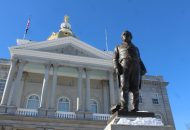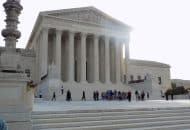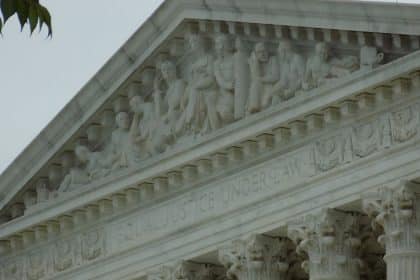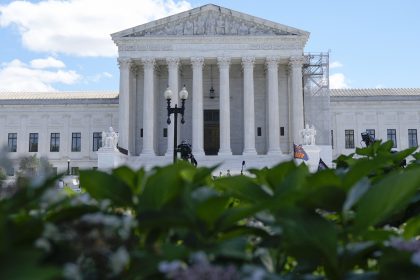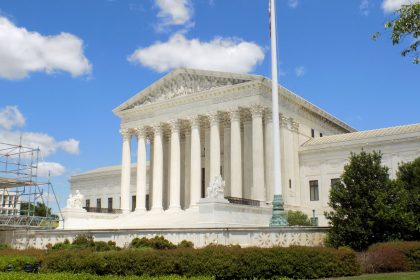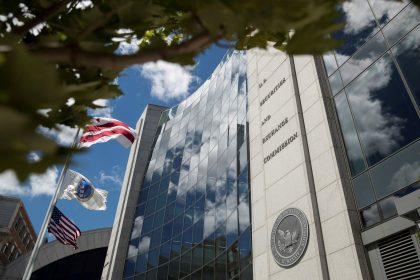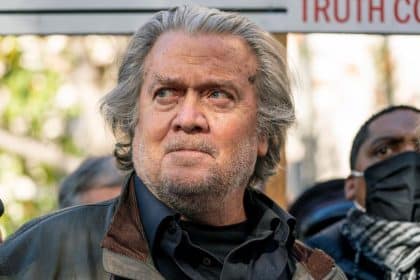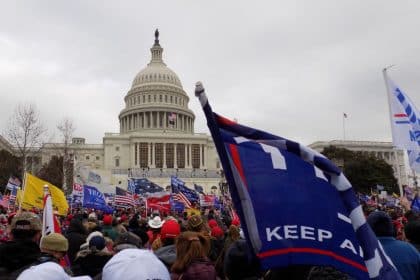Justices Return Trump Immunity Case to Lower Courts
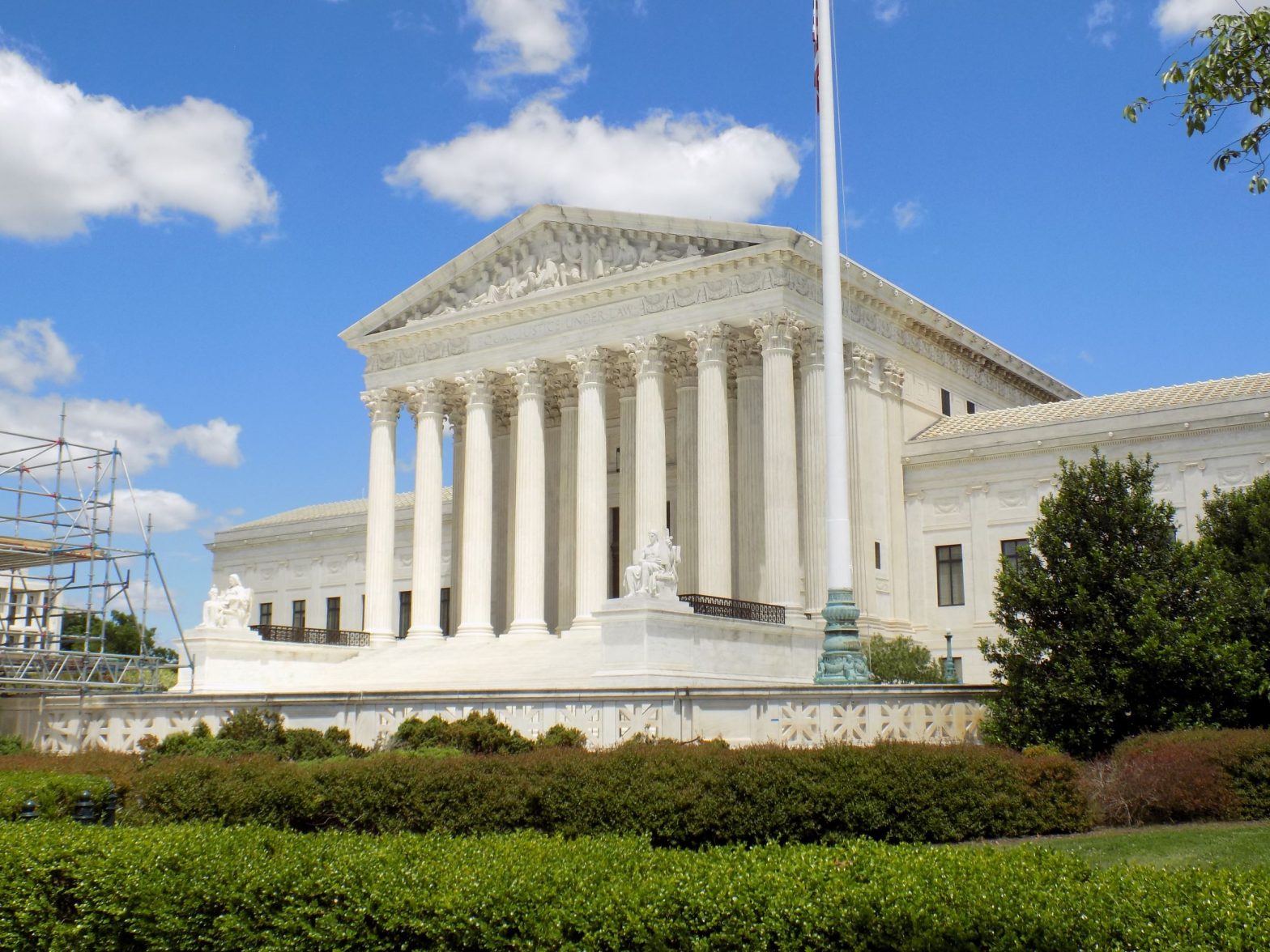
WASHINGTON — A sharply divided Supreme Court on Monday held that while a former president has absolute immunity for actions taken while carrying out core constitutional powers, no such immunity extends to unofficial acts.
However, in a widely expected move, the court’s conservative majority remanded former President Donald Trump’s claim of immunity from prosecution for allegedly trying to subvert the 2020 election back to the lower courts to determine “whether and to what extent Trump’s remaining alleged conduct” falls under the latter category.
“The president enjoys no immunity for his unofficial acts, and not everything the president does is official,” Chief Justice John Roberts wrote for the majority. “The president is not above the law.”
Roberts noted that the “critical threshold issues” in the case “are how to differentiate between a president’s official and unofficial actions, and how to do so with respect to the indictment’s extensive and detailed allegations covering a broad range of conduct.”
“No court has thus far considered how to draw that distinction, in general or with respect to the conduct alleged in the particular,” the chief justice said.
The indictment that led to the case Trump v. the United States, accused the former president of “conspiring to overturn the legitimate results of the 2020 presidential election.’
Specifically, the indictment charged Trump with ‘using knowingly false claims of election fraud to obstruct the federal government function by which those results are collected, counted, and certified.’
The indictment alleges Trump sought to overturn the election using five means:
1. deceiving state officials to subvert the legitimate election results in their States;
2. using deceit to organize fraudulent slates of presidential electors in seven states and causing those electors to send false certifications to Congress;
3. leveraging the Department of Justice to deceitfully urge state election officials to replace their legitimate slate of presidential electors with electors who would vote for Trump;
4. attempting to enlist the vice president to fraudulently alter the results of the election during Congress’s certification proceeding on Jan. 6, 2021, and directing Trump supporters to the Capitol to obstruct those proceedings; and
5. exploiting the ensuing violence and chaos at the Capitol on Jan. 6.
In particular, the indictment charges Trump with conspiring to defraud the United States, in violation of 18 U.S.C. § 371; corruptly obstructing the certification of the presidential election results on Jan. 6, 2021, in violation of 18 U.S.C. § 1512(c)(2); and conspiring to violate the constitutional right to vote of one or more persons, in violation of 18 U.S.C. § 241.
Trump moved to dismiss the indictment on the ground that he enjoys absolute immunity from criminal prosecution for acts taken within the “outer perimeter” of his official responsibilities as president.
The federal court in Washington, D.C., denied Trump’s motion, and the D.C. Circuit later affirmed that ruling.
“Despite the unprecedented nature of this case, and the very significant constitutional questions that it raises, the lower courts rendered their decisions on a highly expedited basis,” Roberts said. “Because those courts categorically rejected any form of presidential immunity, they did not analyze the conduct alleged in the indictment to decide which of it should be categorized as official and which unofficial.
“Neither party has briefed that issue before us (though they discussed it at oral argument in response to questions). And like the underlying immunity question, that categorization raises multiple unprecedented and momentous questions about the powers of the president and the limits of his authority under the Constitution,” he continued.
“As we have noted, there is little pertinent precedent on those subjects to guide our review of this case — a case that we too are deciding on an expedited basis, less than five months after we granted the government’s request to construe Trump’s emergency application for a stay as a petition for certiorari, grant that petition, and answer the consequential immunity question,” Roberts said. “Given all these circumstances, it is particularly incumbent upon us to be mindful of our frequent admonition that ‘[o]urs is a court of final review and not first view.’”
With that the majority effectively left the determination of whether immunity for official acts is presumptive or absolute to the lower court, hinting at the same time that the case will likely wind up before the Supreme Court again.
Roberts’ ruling does offer the lower courts some guidance going forward.
“Certain allegations — such as those involving Trump’s discussions with the acting attorney general — are readily categorized in light of the nature of the president’s official relationship to the office held by that individual,” he wrote.
“Other allegations — such as those involving Trump’s interactions with the vice president, state officials, and certain private parties, and his comments to the general public—present more difficult questions,” the chief justice said.
According to the majority, determining whether an action is covered by immunity thus begins with assessing the president’s authority to take that action.
“But the breadth of the president’s ‘discretionary responsibilities’ under the Constitution and laws of the United States ‘in a broad variety of areas, many of them highly sensitive,’ frequently makes it ‘difficult to determine which of [his] innumerable “functions” encompassed a particular action.’
“And some presidential conduct — for example, speaking to and on behalf of the American people — certainly can qualify as official even when not obviously connected to a particular constitutional or statutory provision.
“For those reasons, the immunity we have recognized extends to the ‘outer perimeter’ of the president’s official responsibilities, covering actions so long as they are ‘not manifestly or palpably beyond [his] authority.”
While the majority concluded Trump is “absolutely immune from prosecution for the alleged conduct involving his discussions with Justice Department officials” it leaves open other profound questions, such as “whether a prosecution involving Trump’s attempts to influence the vice president’s oversight of the certification proceeding in his capacity as president of the Senate would pose any dangers of intrusion on the authority and functions of the Executive Branch.”
In a concurring opinion, Justice Amy Coney Barrett said she agrees with the majority in regard to its position on immunity for a president’s carrying out their “core constitutional powers” but raised some concerns when it came to other so-called “official” acts.
Barrett said she would look at whether the criminal statute under which the president is being charged applies to his conduct and whether that application to the particular facts of the case is constitutional.
Justice Clarence Thomas used his concurring opinion to question the validity of Jack Smith’s appointment as special counsel, which he says “may violate our constitutional structure.”
“In this case, the attorney general purported to appoint a private citizen as special counsel to prosecute a former president on behalf of the United States. But, I am not sure that any office for the special counsel has been ‘established by law,’ as the Constitution requires,” he wrote.
“By requiring that Congress create federal offices ‘by law,’ the Constitution imposes an important check against the president — he cannot create offices at his pleasure,” Thomas continued. “If there is no law establishing the office that the special counsel occupies, then he cannot proceed with this prosecution. A private citizen cannot criminally prosecute anyone, let alone a former president.
“No former president has faced criminal prosecution for his acts while in office in the more than 200 years since the founding of our country,” Thomas added. “And, that is so despite numerous
past presidents taking actions that many would argue constitute crimes. If this unprecedented prosecution is to proceed, it must be conducted by someone duly authorized to do so by the American people.
“The lower courts should thus answer these essential questions concerning the special counsel’s appointment before proceeding,” he concluded.
In dissent, Justice Sonia Sotomayor, who was joined by Justices Elena Kagan and Ketanji Brown Jackson, said the majority’s decision, “reshapes the institution of the presidency.”
“It makes a mockery of the principle, foundational to our Constitution and system of government, that no man is above the law,” Sotomayor continued. “Relying on little more than its own misguided wisdom about the need for ‘bold and unhesitating action’ by the president, the court gives former President Trump all the immunity he asked for and more … our Constitution does not shield a former president from answering for criminal and treasonous acts.”
In a separate dissent, Jackson said she agreed “with every word” of Sotomayor’s “powerful dissent” and went on to accuse the majority of “alter[ing] the paradigm of accountability for presidents of the United States.”
Chief Justice Roberts responded to the dissents by saying “they strike a tone of chilling doom that is wholly disproportionate to what the court actually does today.”
“This case poses a question of lasting significance: ‘When may a former president be prosecuted for official acts taken during his presidency?’” Roberts continued. “Our nation has never before needed an answer.
“But in addressing that question today, unlike the political branches and the public at large, we cannot afford to fixate exclusively, or even primarily, on present exigencies,” he said. “In a case like this one, focusing on ‘transient results’ may have profound consequences for the separation of powers and for the future of our Republic.
“Our perspective must be more farsighted, for ‘[t]he peculiar circumstances of the moment may render a measure more or less wise, but cannot render it more or less constitutional,’” he wrote, quoting former Chief Justice John Marshall.
Dan can be reached at [email protected] and at https://twitter.com/DanMcCue















